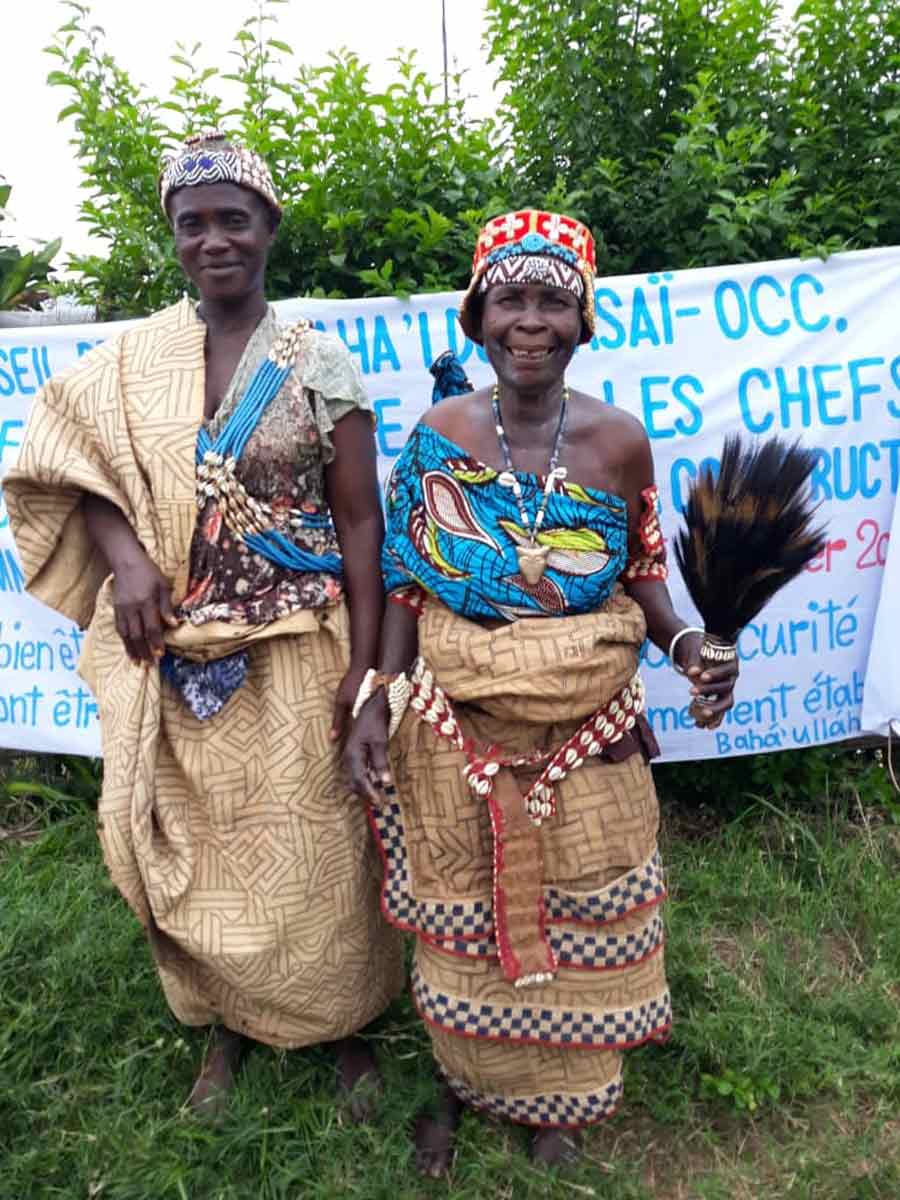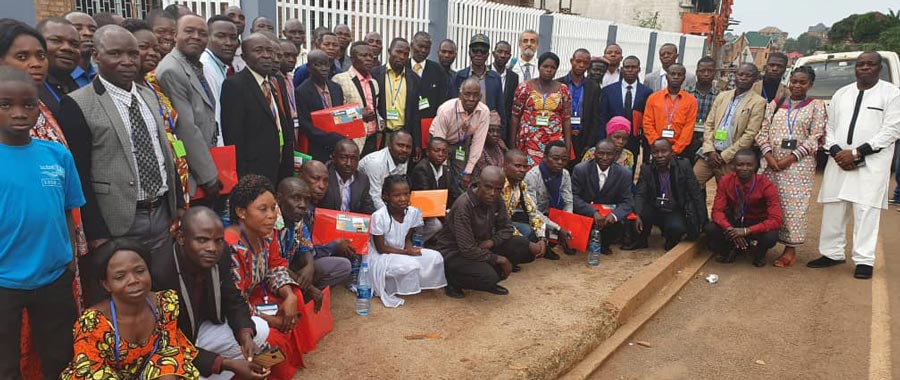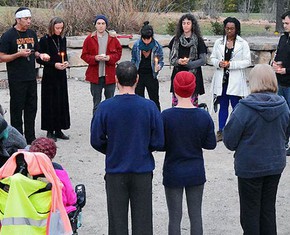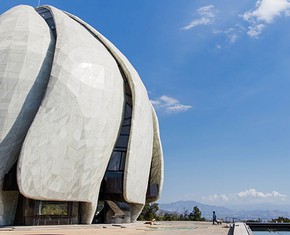Earlier this month, residents of Kakenge in the Central Kasai province of the Democratic Republic of the Congo listened to a remarkable program on local radio.
It was a live broadcast of a conversation between some 60 village and tribal chiefs, many of whom were on opposing sides of armed conflict only a year ago, discussing the true purpose of religion, the unity of the human family, the promotion of material and spiritual progress, and the critical role of women in building a peaceful society.

Chief Nkayi Matala of the Lushiku village (right) and Chief Mbindi Godée of the Ndenga Mongo village. These women were among dozens of traditional chiefs who came together at a conference in Kakenge, Central Kasai, described as “a remarkable step forward that opens up many new possibilities for realizing the unity of peoples and the prosperity of our communities.”
In view of tensions that remain, the country’s Baha’i community invited chiefs from the Central Kasai region to a three-day conference to explore how principles from Baha’u’llah’s writings can shed light on matters of practical and immediate concern for their society.
Lambert Kashama, a leading administrative official in the area, described what drew him to this conference: “During the period of tribal conflict that Kakenge and its surroundings experienced, I would see Baha’is from the two opposing tribes working together and coming to consult with me about what was to be done to restore peace. This is why I have come here today to understand more about these teachings.”
The long-standing Baha’i community of the Democratic Republic of the Congo has spent decades contributing to constructive social change, especially through educational initiatives at the grassroots. In the past few years, they have been in conversation with chiefs in various regions of the country to explore together paths towards a society characterized by principles such as harmony, justice, and prosperity.
“This Faith teaches unity in practice,” commented Chief Walter Melangu.
A focus of discussion at the recent conference was the Baha’i principle that all humanity is one, regardless of race, nationality, or tribe. The chiefs found the gathering to be a unique opportunity to decide on practical action that could turn tense coexistence among tribes and religious groups into constructive, peaceful collaboration.
Jean-Baptiste Shamba, the chief of the Nkinda Katenge village, decided at the conference that as soon as he would return to his community, he would gather every person whom he had seen as an enemy in order to make peace and seek mutual pardon. “Following these teachings,” he said at the conference, “I will reconcile the rancor that I have with my brothers. Our conflict was based on ignorance. Henceforth we will speak as friends for the good of our community.”
Another notable result of the conference was the decision by many of the chiefs to call meetings of all the women in their villages, realizing that their participation was essential for reconciliation to be successful.
At another conference this month in Bukavu, the capital of South Kivu, chiefs discussed the same themes as their peers in Central Kasai. Some expressed that conversations like these had the potential to prevent conflict in the future. “We understand that peace is not something that development organizations bring us: it is a state of the soul and spirit when people decide to contribute to their communities.”
Lavoisier Mutombo Tshiongo, Secretary of country’s Baha’i National Spiritual Assembly, who attended both conferences, described their significance, saying: “These gatherings of chiefs represent a remarkable step forward that opens up many new possibilities for realizing the unity of peoples and the prosperity of our communities.”
“These conferences allow chiefs who have gone to war in the past to come together,” says Justin Kamwanya, another member of the National Spiritual Assembly. “The fact that they express themselves, that they all share the same food, greet, and embrace—most of all, that they are coming together around religion, around the Word of God – this is the catalyst that allows a durable peace to come about.”
“We have seen that the world is evolving,” reads a statement jointly signed by 26 chiefs at the end of the conference in Bukavu. “We will no longer guide our people in darkness, now that the light has appeared through these teachings, which we shall never forget.”
















Comments
Sign in or create an account
Continue with Googleor